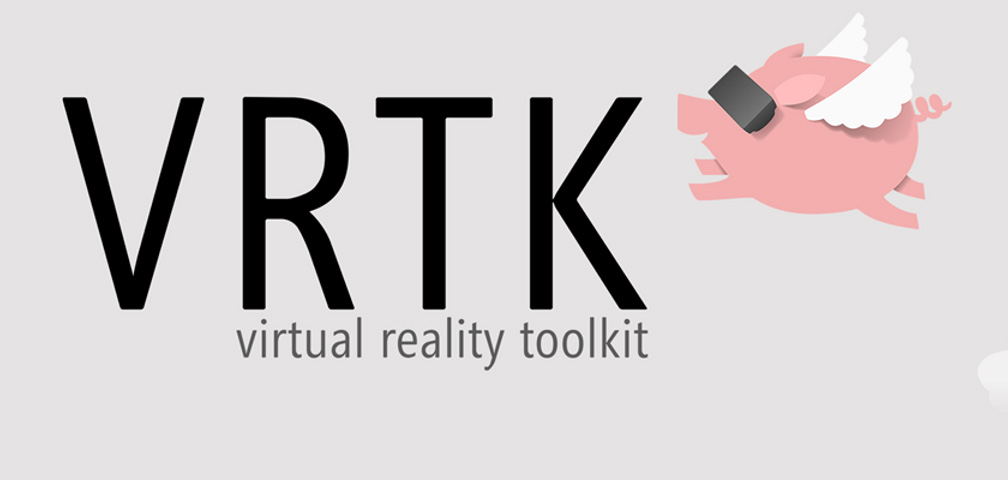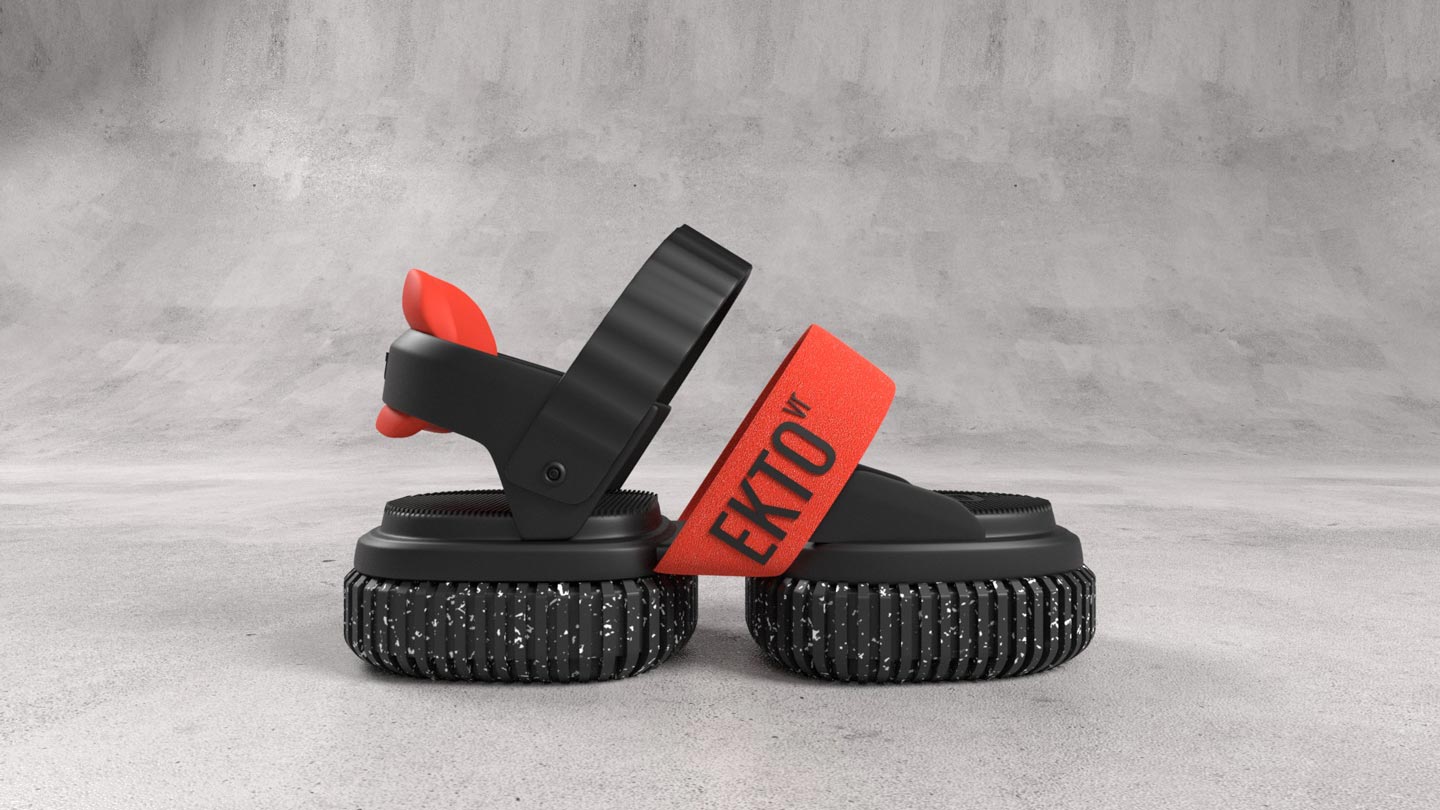VRTK announces version 4 thanks to an Oculus grant
Do you remember one of my popular posts published in December 2017 when I announced the shutdown of VRTK? Well, some days ago things have changed and VRTK has returned from the world of the dead. This is a great news for the VR community.
If you missed some episodes of this story, well, I’ll try to summarize things for you. VRTK is a toolkit aimed at making things easier for VR Unity developers: it offers out-of-the-box functionalities (like locomotion, objects interactions, etc…) to developers, together with cross-platform support. This means that you are able to create a game that can work on all headsets in an easy way by just implementing the VRTK Unity plugin. And besides all these advantages, it is also opensource with MIT license, so you can do with it whatever you want.
The creator of such amazing library is Harvey Ball, that started the project because he found the SteamVR Unity plugin confusing (and I agree with him), so he started creating a toolkit to develop SteamVR apps easily. The project slowly grew and got interest from all the VR community (it has been also featured on UploadVR) and various indie devs started using it to develop faster their VR applications. It also had an associated Patreon account and accepted donations to support the development and everything seemed to run fine.
But in December, Harvey announced that he would have stopped updating VRTK.
I lost a whole chunk of #VRTK @Patreon pledges this week (largely due to the fee change proposal).
I've decided to close down the patreon account at the end of this month as my work on #VRTK is sadly coming to an end.
Thanks everyone for the support over the year <3
— Theston E. Fox 🐖 (@The_StoneFox) December 14, 2017
He got angry because he wanted to perform a major update of the library making it go from the current version 3 to a completely refactored version 4, but he lacked support. The Kickstarter campaign to fund the development failed, the big VR players didn’t show interest in the library and few people actually helped him in developing the code. Harvey felt a bit betrayed by the community and decided to close the Patreon account and suspend the updates to the library: VRTK would have received only bug fixes. Those have been harsh times for the VRTK main contributors, that actually have started answering angrily to anyone in the VR community, even to the ones wanting to be of help (me included). They were angry because they were seeing their project dying notwithstanding the fact it was cool: in their opinion, the community hadn’t helped them enough in developing the library, big magazines haven’t helped them in getting the visibility to seek help and big players (like Unity) didn’t help in any way the project to survive.
And the moral of that story is be careful who you support with your time and energy, because chances are they won't return the favour.
— Theston E. Fox 🐖 (@The_StoneFox) December 15, 2017
I've had very little to no support from those outlets over the past 2 years. But in reality I'm kind of over wanting to continue with VRTK. There isn't that much interest from the industry in it as a solution.
— Theston E. Fox 🐖 (@The_StoneFox) December 28, 2017
But, after four months, we have a happy ending for this story: Oculus has given a grant to VRTK and so the library can finally be upgraded to version 4. VRTK is alive again!
I also want to officially welcome @bddckr to the #VRTK family – he will be closely working with @The_StoneFox on #VRTK v4!
— VRTK (@VR_Toolkit) April 26, 2018
The news has been received with much happiness by the whole VR community, that has started to congratulate Harvey for the result. VRTK won’t become an abandoned project on GitHub, but it will continue to live and prosper inside the VR community, helping people in creating their VR applications.
And you won’t have to worry about Oculus money: VRTK will continue to be free and opensource and will continue supporting all the headsets (so even Vive and Vive Pro).
It won't, VRTK is all about bringing feature parity to as many devs as possible
— VRTK (@VR_Toolkit) April 26, 2018
Regarding the Patreon, the creators are not sure what to do about it, maybe it will just be re-opened to fund additional content for the library.
The patreon is undecided at the moment, if we do bring it back it won't be to support #VRTK development but maybe to support learning content for #VRTK such as videos, user guides, things that make it easier for people to learn and get the most out of #VRTK
— VRTK (@VR_Toolkit) April 26, 2018
I’m very happy for this news and I like to think that this has been possible also because of all people like me that have created some noise about the possible death of this very important library, a death that has been ignored by most VR magazines. The voice of our crowd has been listened… something similar to what happened with AltspaceVR. I’m sincerely joyful for what happened: Oculus has saved VRTK, exactly as Microsoft has saved Altspace. Two projects that can survive these harsh times for VR thanks to big companies that are helping them.
Harvey and Chris are ready to start developing version 4 and have already made a live stream session about it.
But while I’m happy, I also think that some things have to change in VRTK. First of all, some people claimed that it was too difficult to understand the code and so contribute to it. If VRTK really wants to create a community, it has to refactor the code so that everyone can contribute to it, it has to become more open… otherwise, when Oculus money will be over, we’ll have the same problem again. It has also to think about a business model, to make the project become sustainable over time: otherwise, again, after version 4, there will be problems to evolve to version 5. And in the end, I also think that the creators should have a more positive attitude towards the community: some people that I know won’t continue using VRTK because they got too angry when Harvey & Co started answering angrily to people during VRTK temporary shut down. I know that a personal project shutdown is hard to stand, but getting angry with people leads to nothing good.
Anyway, the past is past and I’m sure that the VRTK team has learned from his errors. I really wish long life to the VRTK project and I wish the best of luck to Harvey, Chris and all the others of the VRTK team!
Disclaimer: this blog contains advertisement and affiliate links to sustain itself. If you click on an affiliate link, I'll be very happy because I'll earn a small commission on your purchase. You can find my boring full disclosure here.




that’s effectively a great news !
An amazing news for all the VR community! Oculus made a great decision…